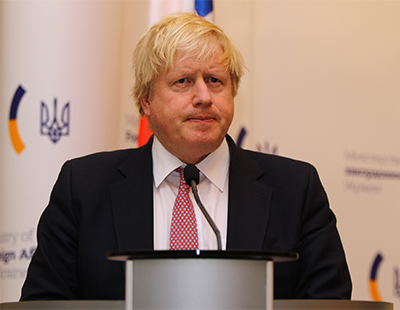As I watched Liz Truss take to the stage at this week’s Conservative Party conference, my eyes were drawn to the sign behind her.
“Getting Britain Moving,” it said.
Great, I thought. Let's see what the Prime Minister will have to say about helping turn the wheels in the property market.
Yet, sadly, like a few of the one-liners Liz delivered, things fell flat.
In fact, the only references to property at all were a nod towards the stamp duty announcement made in the calamitous mini-Budget. Oh, and an anecdote about the PM’s experiences of getting on the housing ladder.
Where were the announcements on driving housing supply? Or ensuring that a whole generation of people, whose only wish to own a property, is delivered on?
It was hugely disappointing, and it came after a few weeks which have left the heads of most working in the sector spinning.
After the madness of the last week, things do finally feel like they have now settled down a little, but only into a place that would have seemed unthinkable just a week or two ago.
Thanks to higher interest rates, we’ve lost over 1,000 mortgage products in the last year and another 1,000 since this debacle began. Some will, of course, return, but at rates that will seem shocking compared to previous offers. Some people will choose not to buy, others will cut their cloth and look to borrow less and keep the repayments the same as before. But for those with a variable rate or about to come off fixed deals, there are many sleepless nights ahead.
Everywhere you look right now (and for some, it may be better to look away), there are sobering statistics which predict the property market is heading towards a cliff edge.
“A 20 per cent drop in house prices.” The Guardian
"Carnage across the mortgage market threatens crash.” The FT
Which would mean widespread job losses across our sector as demand falls along with company profits.
Has the bubble finally burst?
I’ve been in similar places before, in 1991, 2000 and 2008 when a currency crisis, dotcom crash and credit crunch all obliterated the market for years.
More recently, both Brexit and Covid-19 were billed as being the turning-points that would drive a dagger through the housing market.
Yet not only did the market survive, it thrived…delivering successive quarters of house price rises very quickly after initial nervousness had settled down.
But there is a big difference between then and now. Back then, the government and Bank of England saw the threat and responded with support and interest rate cuts.
Now it is the Bank raising rates and the pound sliding due to government policy that seems to be the catalyst in this most recent shock.
So just how bad are things likely to be?
It is very early to say whether this is a blip or a trend.
There has been some recovery in the pound and the immediate threat of emergency rate rises has receded
From my vantage point as the founder of House Buy Fast, a national property company, people are – for now at least - holding their nerve. We have not seen a tsunami of fall-throughs that I remember so clearly from other market wobbles.
Thankfully.
But remember it has, after all, only been a few days of relative chaos in the market.
Make no mistake though, estate agents, buyers and sellers are watching events avidly and awaiting developments.
Although it might be too early to have all the answers, it’s not too soon to be clear about what we need to see happen next.
Whatever the politics though, one thing is essential – we absolutely must avert a house price crash.
Whilst many are watching the news unfold this week and might be pleased, thinking this will be a chance to finally get that foot on the property ladder, I’m sorry to say, it just doesn’t work like that.
If interest rates do rise to the levels predicted, and that leads to a house price crash, it will actually become far more difficult for first-timers to buy. Higher rates mean it costs more to borrow than a year ago so even reduced-price mortgages will be more expensive each month.
What’s more, affordability ratios would be tightened and the general economic shock in the whole economy, which would lead to bankruptcies and job losses, will mean banks are even fussier about who they would lend to.
Many who would want a mortgage simply couldn’t get one, whatever the amount. Buyers would begin to hold back asking ‘why buy now when it could be cheaper next month?’
This would prompt a huge increase in demand for rental property at a time many landlords will have sold up to reap the benefit of higher prices and better returns with money in the bank.
That’s why the next steps the government takes in the days and weeks ahead are vital to the future of homeowners, buyers, all of us in the property sector and far beyond.
*Jonathan Rolande is founder of House Buy Fast and director of the National Association of Property Buyers




/LizzTrussPM-400x310.png)








.png)


.png)



Join the conversation
Be the first to comment (please use the comment box below)
Please login to comment